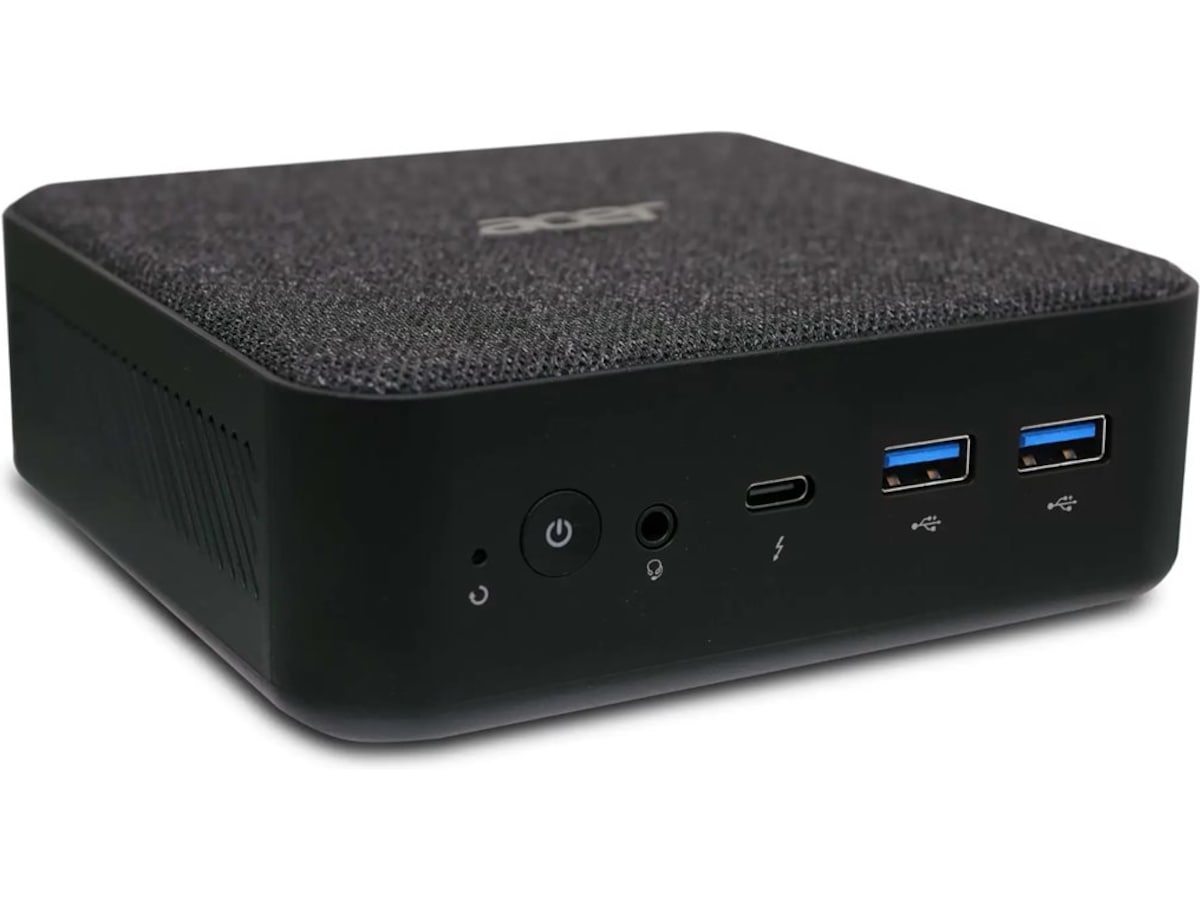Look on eBay for USFF PCs. They're mini computers the size of paperback books that are designed for use in large organisations, and they're made by the usual suspects - HP and Dell mostly. Because they get replaced regularly they're cheap but they're just regular desktop PC hardware. A ten year old i5 can handle being a 4K media centre no problem and can be had for €/£/$70.
Linux
From Wikipedia, the free encyclopedia
Linux is a family of open source Unix-like operating systems based on the Linux kernel, an operating system kernel first released on September 17, 1991 by Linus Torvalds. Linux is typically packaged in a Linux distribution (or distro for short).
Distributions include the Linux kernel and supporting system software and libraries, many of which are provided by the GNU Project. Many Linux distributions use the word "Linux" in their name, but the Free Software Foundation uses the name GNU/Linux to emphasize the importance of GNU software, causing some controversy.
Rules
- Posts must be relevant to operating systems running the Linux kernel. GNU/Linux or otherwise.
- No misinformation
- No NSFW content
- No hate speech, bigotry, etc
Related Communities
Community icon by Alpár-Etele Méder, licensed under CC BY 3.0
Got myself a NUC11 with Intel Celeron N5105. Could've installed the good old Debian, but wanted something a little more exciting, so went with OpenSUSE Leap 16 Beta instead.
I scored an embedded box 3000 we use in the bedroom
I use a Dell Wyze 5070 Thin Client. It costs around 60€, I run DietPi on it because that shit is dope.
I use RPi4, it works well except with some h265 where it really sucks, laggy video, maybe it is because of the software (I use raspbian+vlc). Otherwise its great, silent, Low consumtion, etc
I'm running MythTV front/back on a Pi4 with one of those generic handheld keyboards. Power consumption is important to me because I live off solar power in a campervan.
If the Pi4 died tomorrow I'd probably replace it with a ~NUC.
If you have an android TV, there's a Jellyfin app for TV on there. Otherwise we use a Chromecast with Google TV dongle/remote that works pretty well.
This is what I use too. But, I would like to not have a Google device as part of my chain. (I say on my Pixel phone, with stock android).
I agree it's not ideal, but they're cheap devices that require little setup. Its not like you need to pay a subscription fee to use them for Jellyfin, so I'm okay with it on balance.
Replied from my Pixel phone with stock android as well.
Mele quieter 4c has been really good to me. I was using a celeron nuc, it worked fine, but for quiet moments in videos i could hear the fan. It wasnt obnoxious, but once i noticed it i couldnt ignore it. Mele is passively cooled and the n100 is more than adequate for 4k.
Hot take, just get an old Chromecast HD
Do you need it to do realtime video transcoding of high resolution video (>1080p)? If so, you may need a video card to do it efficiently. Otherwise, that should be more than sufficient. I know others have recommended a raspberry pi, but I don't think jellyfin supports arm CPUs, though I could be wrong. So you'd have to run it in a virtualization layer and that would increase the hardware resources and may or may not be OK on a pi, but likely would not be as energy efficient as a pi usually is and almost definitely will have trouble with realtime transcoding.
To get around the realtime transcoding you can either make sure your devices support the codecs of the videos you are playing, or you can use a separate device to do batch transcoding of the files before giving them to jellyfin. I haven't implemented jellyfin yet, though it's next on my list, so I'm not sure if there are ways to do background transcoding inside it.
If you're not hung up on Jellyfin, check whatever streaming software for it's hardware recommendations, but Jellyfin is pretty good overall from my playing with it. It's not the lowest resource using system, though.
I read OP's question as him streaming from a Jellyfin server to this box, not using this box as a Jellyfin server itself. Could be wrong, though.
Also, it's my understanding that transcoding is 100% about hardware support for the codecs and that integrated graphics that have it (TL;DR: 12th gen Intel) are going to perform pretty much just as well as even a high-end discrete gaming GPU for that task.
(I say "gaming" GPU because I was reading about the Arc Pro B50 the other day and it has two separate sets of transcoding hardware, so it presumably would actually perform better in terms of the number of simultaneous streams it could handle. But short of something like that, it apparently doesn't make much difference.)
I have been using this since 2020. https://www.amazon.com/Dell-E6430-Processor-Professional-Refurbished/dp/B06Y1FJNYP Not powerful by today's standards but still does the job. It is running Almalinux. For the keyboard, I am using this https://www.amazon.com/Logitech-Wireless-Keyboard-Multi-Touch-Touchpad/dp/B005DKZTMG
I've seen these MeLe sticks before that are intriguing: https://www.amazon.com.au/MeLE-Upgraged-PCG02-Computer-Industrial/dp/B0DK4Z9YSH
What about an Odroid N2+? That could run coreelec or Android well? For Jellyfin its great, though you're very like going to run into issues if you want the likes of Netflix on it.
